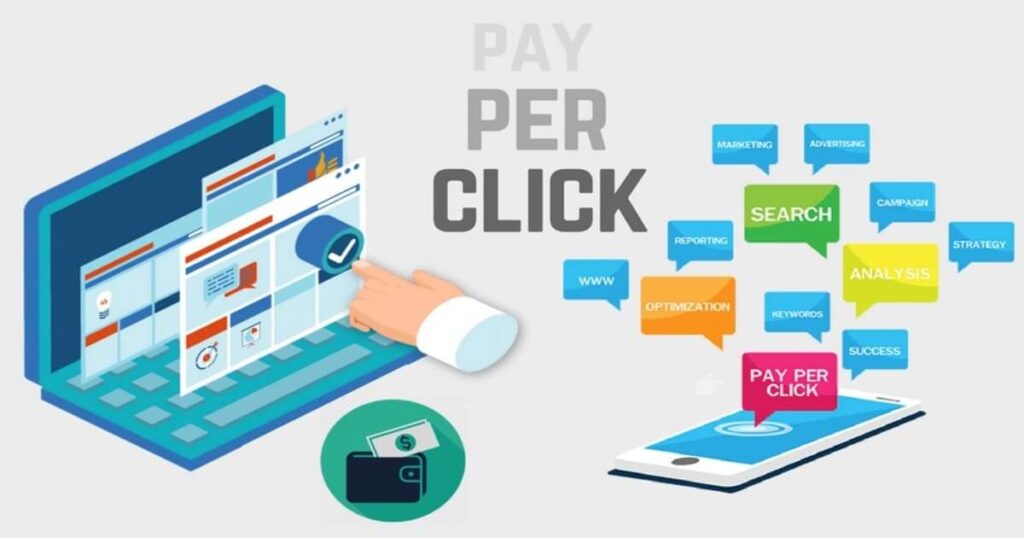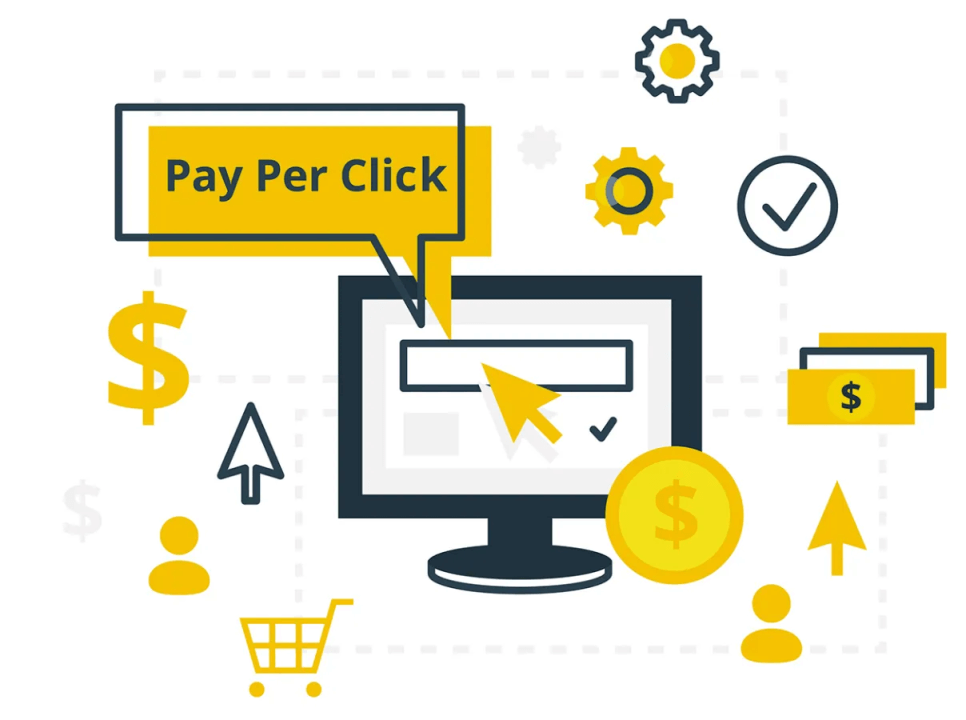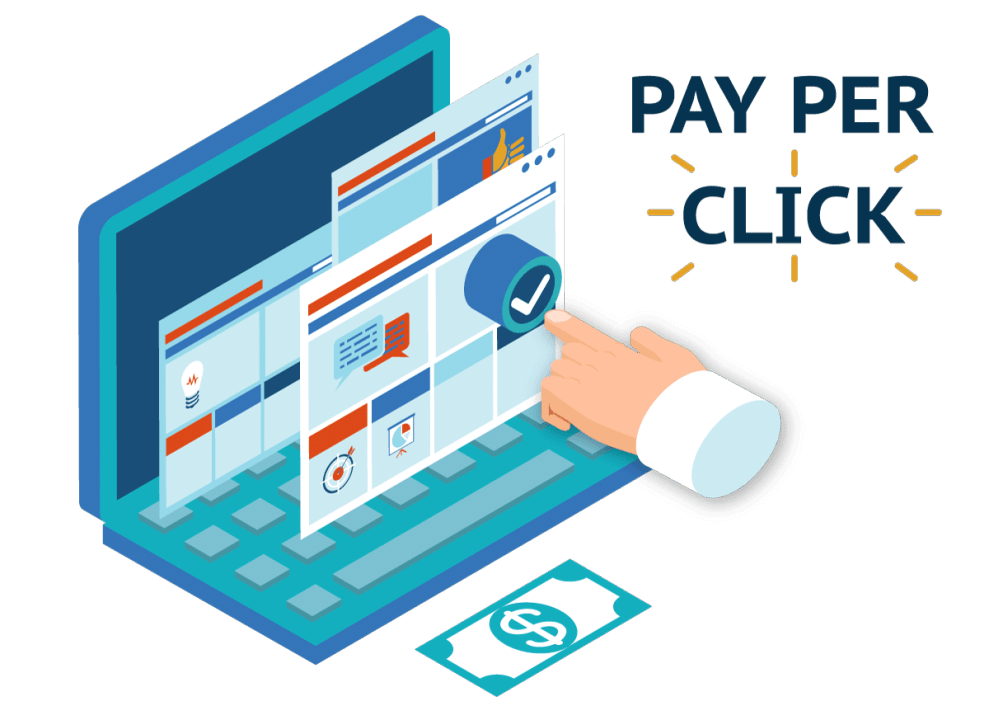PPC Learn – Mastering Pay-Per-Click Advertising
Keeping up with new words and expressions in the PPC (Pay-Per-Click) world holds great importance for many reasons. First, getting a grip on today’s terms leads to straightforward and accurate conversations with teammates, clients, and partners. It makes sure everyone stays on the same page.
What Is PPC?

PPC (Pay-Per-Click) is a form of online advertising where advertisers pay a fee each time one of their ads is clicked. It’s a way to buy visits to your website rather than earning those visits organically through search engine optimization (SEO). Advertisers bid on keywords or phrases relevant to their business. When users search for those keywords, ads are displayed based on the bid amount and the quality of the ad.
Understanding How PPC Works

Advertisers choose keywords they believe potential customers will use when searching for products or services related to their business. Ads are displayed on search engine results pages (SERPs) or on websites within the display network. Ad placement depends on the bid amount and the relevance of the ad to the user’s query.
| Keyword Targeting | Businesses target the keywords they want their ads to appear in by setting a maximum bid. |
| A search is made | Users perform searches that include keywords targeted by the business. |
| Auction takes place | The ad platform algorithm will conduct an auction based on quality and bids to determine ad placement and bid amount. |
| An ad is clicked on | Businesses are only charged if their ads are clicked. Users will be taken to the desired page on the business website. |
Keyword Research for PPC Success
By choosing the right keywords, you can reach your target audience, maximize your ad spend, and improve the overall performance of your campaign. Here’s how to conduct effective keyword research for PPC success:
1. Use keyword research tools
You must use tools like Google Keyword Planner or SEMrush to find relevant keywords related to your business.
2. Analyze competitor keywords
Use tools like Google Analytics or conversion tracking pixels to monitor campaign performance. Measure the success of your campaign by tracking conversions and other key metrics.
3. Identify negative keywords
Focusing on long-tail keywords in keyword research for PPC success is crucial because these keywords are more specific and often less competitive. They can help you target a more precise audience, resulting in higher conversion rates and better return on investment (ROI).
Tips for Crafting Compelling Ad Copy
Creating compelling ad copy is essential to attract attention and drive conversions in your PPC campaigns. Here are some tips:
Know Your Audience, understand the needs, preferences, and problems of your target audience. Tailor your ad copy to specifically address these issues.
- Use Strong and Action-Oriented Language, include a clear call-to-action (CTA) that encourages users to take the desired action, such as “Shop Now,” “Learn More,” or “Register Today.”
- Highlight Unique Selling Points (USP), be able to emphasize what makes your product or service stand out. Whether it’s a special offer, free shipping, or limited-time discount, make sure it’s clearly displayed.
- Keep It Short and Clear, as your ad copy should be direct and to the point. Avoid jargon and ensure your message is easily understood at a glance.
Methods for Analyzing and Optimizing PPC Campaigns
Analyzing and optimizing PPC campaigns is crucial to maximize return on investment (ROI) and ensure your ads are effective. Here are some methods to achieve this:
Monitor Key Performance Indicators (KPIs)
Click-Through Rate (CTR) is available to measure the percentage of users who click on your ad after seeing it. A high CTR indicates that your ad is relevant and attractive.
A/B Testing
Create multiple versions of your ad with different headlines, descriptions, or CTAs. Test these variations to see which performs best.
Analyzing Search Query Reports
You can review search query reports to see which keywords are triggering your ads. This helps identify new keyword opportunities and negative keywords to exclude irrelevant traffic.
Refining Keyword Targeting
Be able to identify and add negative keywords to prevent your ads from appearing on irrelevant searches, thus reducing wasted spend.
Exploring Advanced PPC Strategies
Exploring more advanced PPC (Pay-Per-Click) strategies can help you gain a competitive edge, maximize your ad spend, and achieve better results from your campaigns. Here are some advanced PPC strategies to consider:
Audience Segmentation
Use data to segment your audience based on demographics, interests, behaviors, or previous interactions with your website. Create tailored ads for each segment to increase relevance and engagement.
Dynamic Search Ads
Google automatically generates ads based on your website content. This helps fill gaps in your keyword strategy and capture relevant traffic that you might not be manually targeting.
Ad Customizers
Use ad customizers to dynamically insert relevant information into your ads, such as prices, product details, or countdown timers. This increases ad relevance and urgency, thus driving higher engagement.
Common Mistakes to Avoid in PPC
Here are some mistakes and solution resolutions in PPC, among others:
Ignoring negative keywords
The problem of not adding negative keywords can result in wasted ad spend on irrelevant searches. The solution is to regularly review search query reports and add negative keywords to filter out irrelevant traffic.
Not tracking conversions
Without proper conversion tracking, it’s difficult to measure the effectiveness of your campaigns. The solution is to implement conversion tracking tools to monitor and analyze your ad performance.
Focusing solely on clicks
Not regularly reviewing and adjusting your PPC budget can lead to overspending or underspending. Monitor your budget and adjust based on campaign performance and business objectives.
The Future of PPC Advertising
Here are some key trends and predictions for the future of PPC advertising:
Increased Use of Artificial Intelligence (AI)
AI-based optimization and machine learning will continue to improve bid management, ad targeting, and campaign optimization, enabling more precise and efficient management of ad budgets.
Growth of Voice Search and Conversational AI
As the prevalence of voice search increases, PPC strategies will need to adapt to accommodate natural language queries and longer, conversational search phrases.
Integration of Augmented Reality (AR) and Virtual Reality (VR)
As AR and VR technologies will create immersive advertising experiences, allowing users to interact with products in a virtual environment before making purchase decisions.
Conclusion
PPC (Pay-Per-Click) is a form of online advertising where advertisers pay a fee each time one of their ads is clicked. It’s a way to buy visits to your website rather than earning those visits organically through search engine optimization (SEO). Advertisers choose keywords they believe potential customers will use when searching for products or services related to their business. Ads are displayed on search engine results pages (SERPs) or on websites within the display network. Ad placement depends on the bid amount and the relevance of the ad to the user’s query.
